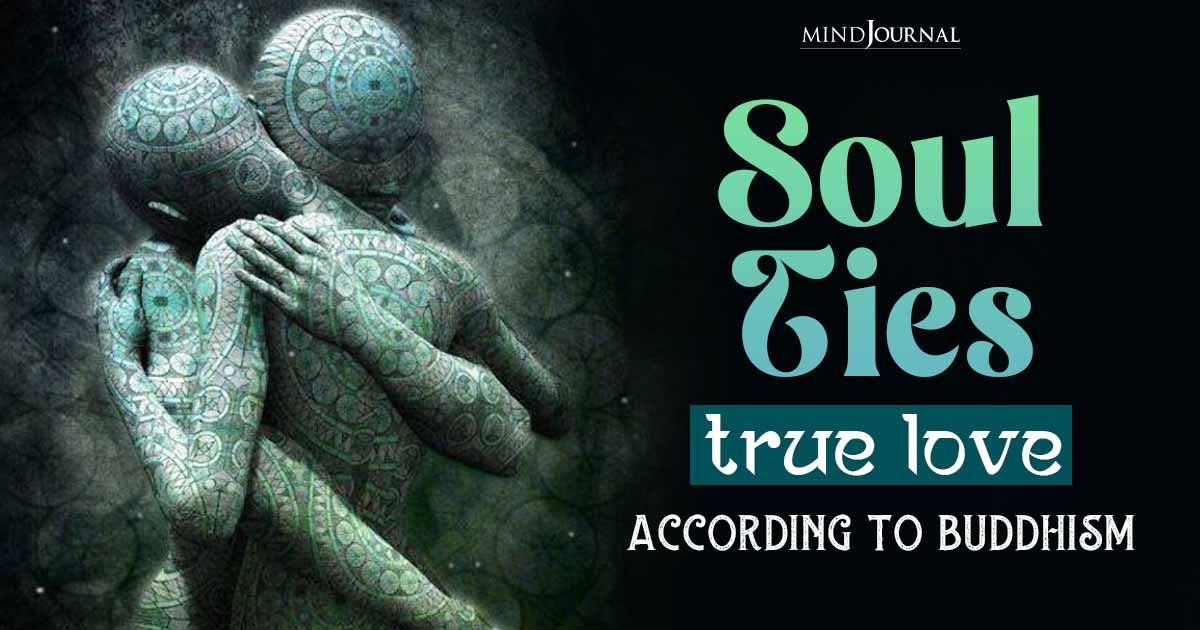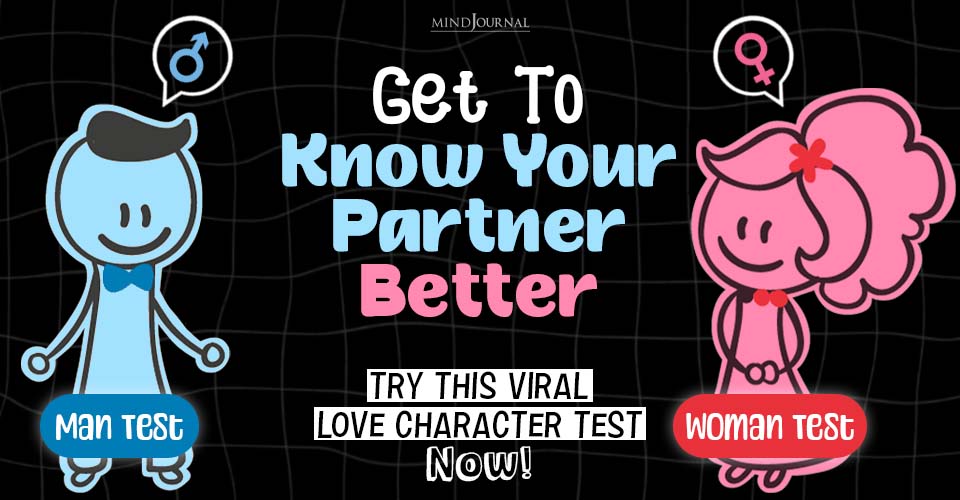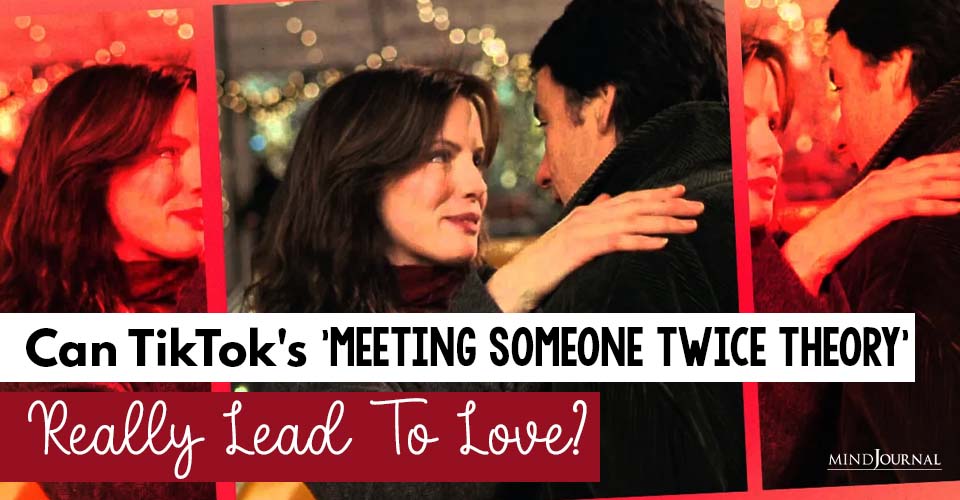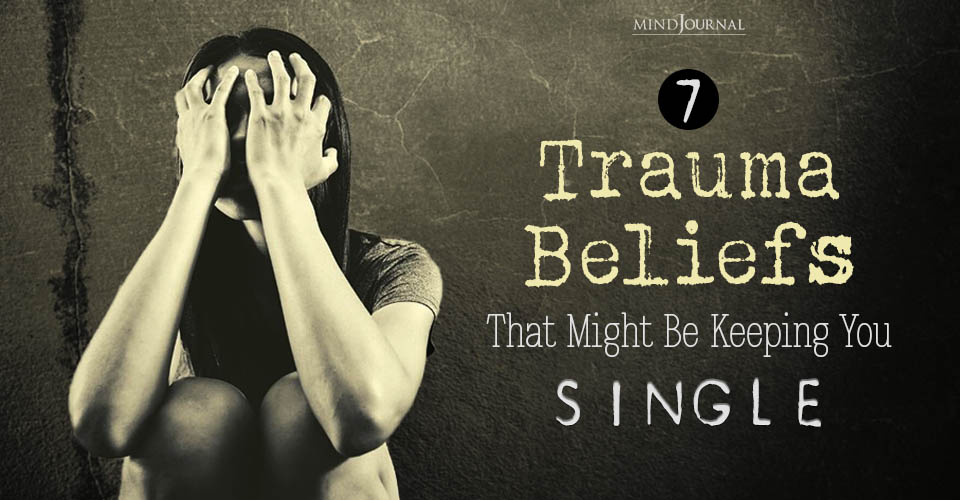Do you believe love hurts? Understanding the concept of soul ties will help you see love from a higher perspective. The meaning of soul ties will enlighten you!
Love is the greatest blessing to humankind. Soul ties allow us to experience deep, true love and a connection of the soul with our soul mate. But with love, comes want and craving that causes suffering, according to Buddhism.
So how can we love someone deeply without experiencing the suffering of attachment?
By being detached.
Is perfect love a curse?
When we are in love with a good person, we tend to look for signs and validations to tell us this person is The One. So we do not hesitate to put certain labels on our relationship like true love, soulmates, twin flames, and soul ties. These labels make us feel better about our relationship, about the connection we share with each other, and about ourselves.
But we rarely understand what these labels actually mean. Most of us have little to no idea about the true essence of these heavy, meaningful terms. All we know is that using these labels makes us feel good about our relationship. In doing so, we may deliberately tarnish the very emotional connection we are so keen on building, nurturing, and nourishing.
Related: The Two Types Of Cosmic Connections You’ll Encounter in Life
By calling someone our soul mate, we make things worse. By defining our relationships as soul ties, we set up ourselves for failure. How? Through our expectations.
As we lack a true understanding of what these labels mean, we mistakenly believe that these make our emotional connection stronger, better…perfect. And that is where it starts going downhill.
No human being on this entire planet is perfect. No relationship in the entire cosmos is perfect. Everything is flawed and imperfect and that is exactly where beauty and love lie.
But as our expectations soar through the roof by using these labels, our dreams, aspirations and hopes from our relationship skyrocket. And when these unreasonable expectations are obviously left unmet, we are left confused and in pain. We question the authenticity of our soul mate and wonder how we can cut these soul ties.
But that’s not how relationships work. And I found that out the hard way. Thankfully, being a practitioner of Buddhism, I found my way towards love and light (albeit a bit late) and understand what true love actually means. (SPOILER: Perfect love is unconditional, universal love. That’s what true love is. But more on that later).
But to understand the Buddhist perspective on love and emotional connection in a relationship, we need to first understand what soul ties actually mean.
Related: 7 Signs You Are Spiritually Connected With Someone

Definition of soul ties
How to define soul ties?
Soul ties are powerful, unexplainable, and intense emotional bonds we share with another person. Also known as spiritual cording, soul ties can occur in any type of relationship and are not limited to romantic ones.
Although the relationship may or may not involve sexual activity, it is often felt strongly after becoming physically intimate with our romantic partner, with whom we share this bond. This spiritual connection with another individual is rooted deep in our soul.
“It’s a deep connection, an eternal bond. It’s a soul tie. It’s a link that doesn’t necessarily end when or if the relationship does,” explains author Elyane Youssef.
However, attachment can often be misunderstood as an emotional connection when we try to add spirituality to natural human emotions. But when an emotional connection is formed based on detachment and unconditional love, a soul tie can develop even in non-romantic relationships.
Soul ties have the power to influence us strongly and this is why it is often important that we cut this spiritual cording at the end of a relationship, before moving on.
Related: 17 Obvious Signs You’ve Found Your Soulmate
When you don’t cut soul ties
Although I don’t pay much heed to all these fancy terms like soul ties and twin flames, I do believe that we have soul connections with some people in our lives, some of which may not necessarily be romantic. My belief got even stronger when I met my ex… I just knew in my heart that she was the one.
It was hands down the deepest and most intimate relationship I ever had. She was an amazing human being who always brought out the best in me and drove me to reach my full potential, whether in my career or in my life.
She felt like home – a place of deep spirituality where I felt at peace. If that’s not a soul mate, I don’t know what is.
But the problem started when I began thinking of her as my soulmate. My expectations from her became unrealistic and no matter how much she cared about me, it was never enough for me.
She was supposed to be my soulmate and she was supposed to do everything right. At the slightest sign of complications, which are a natural part of any healthy relationship, I doubted the authenticity of our relationship. And it eventually made things worse.
My lack of understanding of what a healthy relationship meant and my excessive focus on soul ties brought my beautiful relationship to an end. But only if it was a happy ending. I refused to end the relationship. I refused to let her go. I refused to move on. Soon the love I had for her turned into manipulation and abuse.
Why? Because she was supposed to be The One. She was supposed to be my soulmate.
Related: 10 Passionate And Intense Signs You’re In Spiritual Love
Is this what true love is? Is this what soul ties feel like?
This was just an unhealthy attachment that I confused with an emotional connection. Long story short, my misunderstandings about what soul ties meant led me to the end of a beautiful relationship. What I failed to realize is soulmates don’t have to be life partners.
Soul ties don’t need to last forever. They are meant to help in our journey of self-discovery, spiritual awakening, and enlightenment. They are not the destination.
And this is where Buddhism came in. Being a lifelong practitioner of Buddhist philosophies, I turned to the teachings of Gautama Buddha in my darkest hour. And that’s when I found the answer.
Let go!
Let go of attachments.
Let go of desires.
Let go of your need to be happy.
Related: 9 Differences Between True Love And Emotional Dependency
Buddhism and love: What does Buddhism teach us about love?
“If you cannot transform and take care of the suffering in you and in the other person, that is not true love.” – Thich Nhat Hanh, Buddhist monk & author.
So what do Buddhists think about relationships? According to global spiritual leader Thich Nhat Hanh, also known as the father of mindfulness, the Buddha believed in universal, unconditional love – the love we have for Mother Earth.
Romantic love can be a source of joy and happiness for most people if their love is true. However, if the relationship is not based on true love, it can lead to pain and suffering for both partners.
So what is true love? To put it simply, it is love that is unconditional. Love that is free from attachment. According to Buddha’s teachings, true love is based on four elements –
- Maitri (loving-kindness)
- Karuna (compassion)
- Mudita (Joy)
- Upeksha (Inclusiveness)

Here’s why these elements are so important for a healthy loving relationship –
1. Maitri (Loving Kindness)
Maitri refers to one’s ability to make someone happy through loving-kindness. If we are unable to make our romantic partners happy in the relationship, then there is a clear lack of emotional connection. However, to make another person happy, you need to first make yourself happy.
If you are struggling with fulfilling your own emotional needs, not only you will be unhappy in life, but it will also eat away at your self-esteem, eroding your ability to give happiness to your partner.
I believed my happiness was tied to my partner and that’s why I was desperately clinging on to her. But once I let her go, I realized my happiness was in accepting myself. Now that I am happy, I know how to make my loved ones happy.
Related: Loving: The Buddhist Way
2. Karuna (Compassion)
Compassion enables us to empathize with others and help to reduce the suffering of those in need. Karuna allows us to show that we actually care about the person we love without being asked, instead of just saying it.
According to Buddhism, compassion is one of the main elements of true love that can help us replace suffering with happiness in ourselves and in our loved ones.
In my previous relationship, not only did I fail to reduce my partner’s suffering, instead, I also added to her suffering by being needy & clingy, having unreasonable expectations, and having an insecure attachment.
But when I developed empathy and compassion, I could realize the pain I was making her go through. This is what motivated me to let her go. It was only when I loved her unconditionally, I was able to bring happiness back into her life by stepping away.
3. Mudita (Joy)
Mudita is a Pali and Sanskrit term that means vicarious & sympathetic joy. It is a type of secondary or indirect happiness that we experience from feeling pleased and excited about others’ well-being. In Buddhism, this type of unselfish joy from someone else’s good fortune is a vital aspect of true love.
When you make your partner cry for your own insecurities or ego, it will lead to unhappiness within you as well. This is not a sign of true love, whether in a romantic or non-romantic relationship. This is why we need to stop being controlling and jealous and learn how to cultivate mudita. And the way to do that is through awareness.
Once I became aware of my own limitations in my relationship, I gained the ability to do what was right, even if it was not directly beneficial for me. Letting the love of my life go turned out to be a positive experience for me simply because it made her happier, which in turn made me happy.
Related: Buddhism And Romantic Relationships: 7 Golden Rules

4. Upeksha (Inclusiveness)
When you discriminate and exclude the person you love from what is important to you, then it is not true love. If you do not feel pain in your partner’s suffering and if your partner is not happy with your achievements, then you don’t share a spiritual bond with your partner.
I was blind to my partner’s pain in my romantic relationship and was solely focused on my own individual suffering. But that’s not how soul ties work.
Where there is true, unconditional love, separation or discrimination cannot exist. Buddhists believe that true love is based on inclusiveness. Your suffering is my suffering, and my problems and your problems. This mindset brings relationships closer and makes them stronger.
True love builds soul ties
When love is rooted in the four elements of true love – Maitri, Karuna, Mudita, and Upeksha -it becomes unconditional, selfless love, which paves the way to soul ties. Love, whether romantic or in any other form, can be a great source of happiness when it is true.
When love is built on respect, kindness, empathy, compassion, and inclusivity, it ceases to be conditional. You stop focusing on the object of your love (your partner) and instead focus on love itself. Love for self. Love for others. Love for someone special.
Love is beyond all attachments, boundaries, and limitations and that is what love is in Buddhism. Love permeates all and expands from self to other people, nature, and the entire universe.
When you love yourself and every other living being unconditionally, in a detached manner, that is when you build a spiritual connection with others.
Related: What Buddha Said About Love, Pleasure And Married Life
Breaking soul ties

Soul ties are divine connections that help us grow and evolve in our spiritual journey. Then why would we want to cut a soul tie? Because these emotional connections are not necessarily eternal bonds.
Every person, every relationship has a purpose and once that purpose is fulfilled, they move away, strengthening us to continue our journey. When we are unable to realize this, we become entangled in suffering and keep ourselves from understanding our higher purpose. Instead, we fall into a dark abyss that can turn out destructive in many unimaginable ways.
The truth is, true love does not necessitate that you will be physically together with the person you love. Letting go becomes possible only when all four elements – Maitri, Karuna, Mudita, and Upeksha – are involved in your love. In essence, love is not just a feeling. Love is infinite. Love is without conditions, rules, or borders.
Cutting soul ties may seem like the end of your relationship, but it is not the end of the love you hold deep in your heart. Love that is not concerned with possessing the other person, but focused on bringing happiness to them – even at the cost of ending the relationship.
Related: 6 Buddhist Practices To Help Let Go A Relationship
Soul ties are eternal connections, not permanent relationships. Love does not come with any guarantees. If it does, it is not unconditional love.
Letting go is not always the easiest thing to do, but it definitely makes the most sense when you are truly in love.
Frequently Asked Questions (FAQs):
What is self from a Buddhist perspective?
The concept of individual self is regarded as an illusion from the Buddhist perspective. The central tenet of Buddhist philosophy is that Buddha believed in the non-self. Hence, Buddhists believe that there is no unchangeable self. In Buddhism, the Sanskrit term Anatman and the Pali term Anattā refer to the belief there is no specific underlying, permanent substance in humans that can be considered as the soul.
How do you break a soul tie with someone?
Breaking soul ties can be extremely difficult, but it is possible. If your soul tie is holding you back, then you need to put in some spiritual effort. Here are a few steps to get started – practice meditation, communicate with the other person’s soul, and tell them you are not happy with the relationship and you wish them health and happiness. You can also call spirit guides or angels for help.
Is anything eternal in Buddhism?
No, nothing is considered eternal by Buddhists. In Buddhism, the Sanskrit term anitya and the Pali term anicca highlight the belief that nothing is permanent. Buddhists believe that impermanence is the true essence of nature and everything is prone to change.
What do Buddhists say about emotions?
According to Buddhist philosophies, positive and virtuous emotions cause joy, happiness, and inner peace, while destructive and negative emotions lead to suffering or dukkha. Negative emotions are challenges that one needs to overcome in order to experience happiness.












Leave a Reply